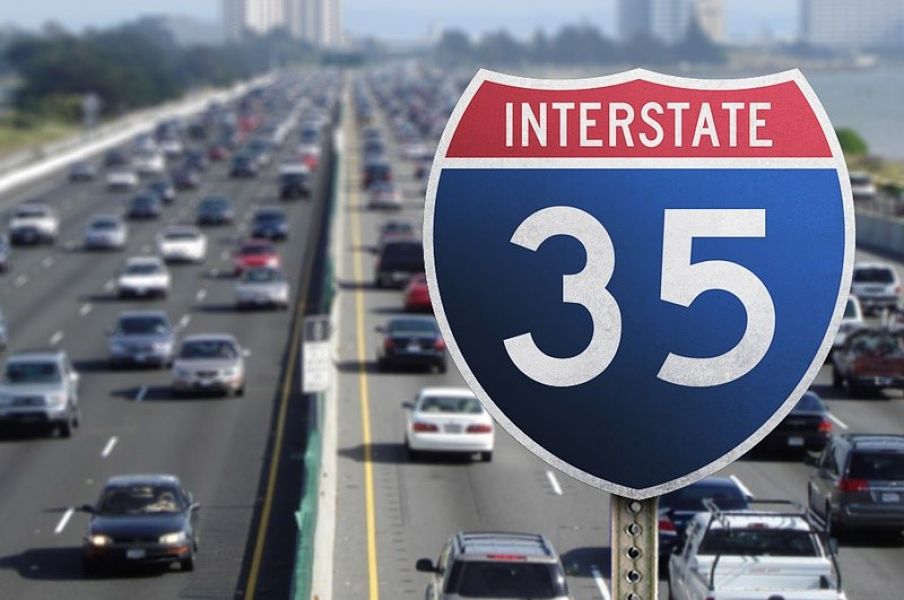In their fourth Highway Boondoggles report, U.S. PIRG and the Frontier Group profile wasteful highway projects that state DOTs are building across the country. Today's boondoggle: Texas’s $8 billion plan to widen I-35 in Austin. Despite enormous state highway debt, and the growing need for transit and complete streets to create more compact and connected neighborhoods, policymakers have proposed spending $8 billion to expand I-35 through the middle of Austin.
Interstate 35 on its route through the heart of Austin is notoriously congested, and its traffic is a constant topic of complaints and news coverage. Commuters are desperate for a fix. But a proposal to add miles of new lanes will likely only exacerbate the problems that led to congestion in the first place.
The proposal being put forth by Texas officials would add four new lanes (two in each direction) along approximately 33 miles of I-35 traveling north-south through Austin. The project is the largest piece of a massive $8.1 billion collection of projects up and down I-35 in the Austin area.
Just as road expansions elsewhere in Texas have failed at reducing congestion -- like Houston’s Katy Freeway expansion -- any congestion benefits from widening I-35 will likely be short-lived. Austin’s suburbs of Georgetown, north of the city, and San Marcos, south of it, both saw population grow by more than 35 percent from 2010 to 2016. If those cities continue to see population growth as in recent years -- which seems likely if encouraged by a wider highway connecting them to Austin -- I-35 will quickly fill up with cars once again.
An I-35 expansion would also drain money from other pressing transportation needs. In 2012 Austin adopted a city vision for limiting sprawl, expanding transportation choices, and creating more compact, connected communities. Achieving that vision will require a variety of projects. These include building better bike and pedestrian infrastructure downtown, like the improvements proposed for the Guadalupe Street Corridor that would cost $33.7 million. Various proposals have called for creating new light rail routes through the heart of Austin, at a cost of $400 million to $1.4 billion.
Texas’ enormous appetite for new roads -- including the addition of 12,000 new lane-miles from 2000 to 2016 -- have already drained money from the budget and forced the state to make difficult financial decisions. Texas has shifted billions of dollars to pay for roads and road debt from elsewhere in its budget, as the result of both Proposition 1 in 2014 and Proposition 7 in 2015. As of 2015, Texas owed $29.1 billion in highway debt, second-most in the country, and 30 times more than it owed in 2000. In 2014, Texas paid $4.8 billion just to service its debt, 90 times more than in 2000.
As of February 2018, the I-35 highway plan is on hold, because the Texas Transportation Commission decided not to support any roads with tolled elements. However, local officials are still pushing to move the project forward.
SaveSave






